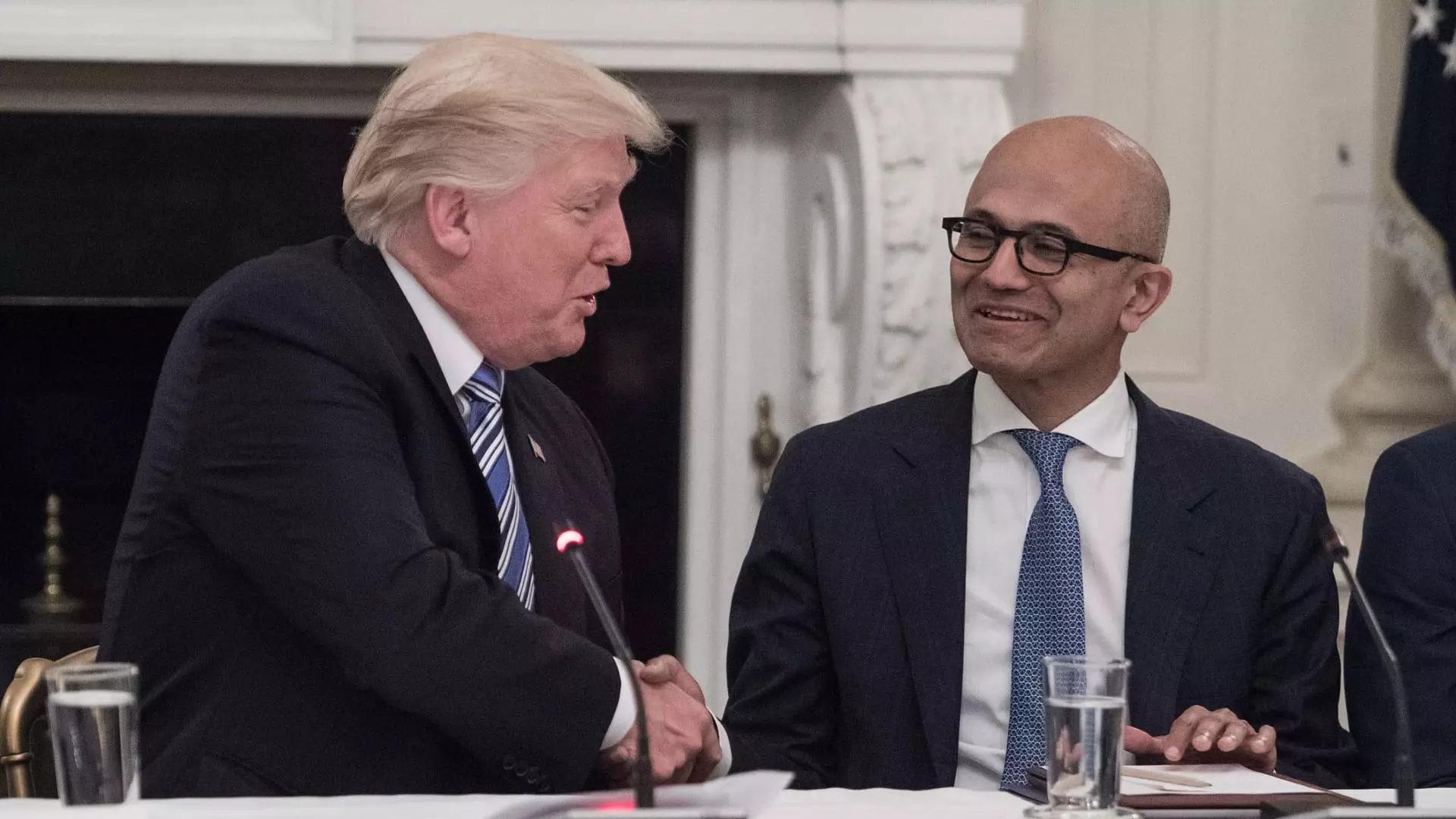In a surprising but revealing move, Microsoft declared on Thursday its intention to donate $1 million to the inauguration fund of President-elect Donald Trump. This decision illustrates a growing trend among leading technology companies in aligning themselves financially and politically with the incoming administration. Just hours prior to Microsoft’s announcement, Google also pledged $1 million to the same cause, while Meta (formerly Facebook) had made a similar contribution a month earlier. Such donations signal a concerted effort by tech giants to cultivate favorable relationships with political leadership, which could have significant implications for the industry overall.
Microsoft’s financial backing appears to be part of a broader pattern within Silicon Valley, where influential tech leaders are not hesitating to show their support for Trump. Reports indicate that Amazon is considering a hefty contribution as well. Notably, OpenAI CEO Sam Altman and Apple’s CEO Tim Cook have both pledged $1 million each to Trump’s inauguration fund, which underscores a unified stance within major technology firms. This collective approach raises questions about whether the tech sector is seeking to secure a voice in the government’s evolving policy landscape, particularly regarding technological advancements and artificial intelligence.
The Role of Personal Relationships
Microsoft has a storied history of engagement with Trump, as evidenced by prior contributions made to both his first inauguration and to President Joe Biden. CEO Satya Nadella has previously met with Trump on multiple occasions, revealing a complex relationship that extends beyond financial contributions. The meetings, including discussions surrounding the controversial acquisition of TikTok in 2020, illustrate the intertwining of corporate interests and governmental action. Nadella’s involvement in Trump’s technology roundtable in 2017 further entrenched Microsoft’s presence in the political arena.
Implications for Artificial Intelligence Policy
Among the myriad issues facing the technology sector, artificial intelligence remains a focal point for Microsoft. The company appears keen to influence U.S. policies that affect AI development and implementation. As noted by Brad Smith, Microsoft’s vice chair and president, the United States must adopt a comprehensive strategy to maintain American leadership in AI on a global scale. This aligns with broader strategic efforts undertaken by tech leaders to advocate for regulatory environments that favor innovation and market agility.
The alignment of tech companies with the Trump administration suggests a potential shift in how technology firms engage with political entities. As the inauguration approaches, it will be intriguing to observe how these contributions translate into action. Will the backing of a newly elected president guarantee favorable policies for these tech giants? Or will public and political scrutiny temper the growing influence of technology in governance? The answers to these questions will ultimately shape the trajectory of both the tech industry and its role within the broader political landscape.


Leave a Reply
You must be logged in to post a comment.